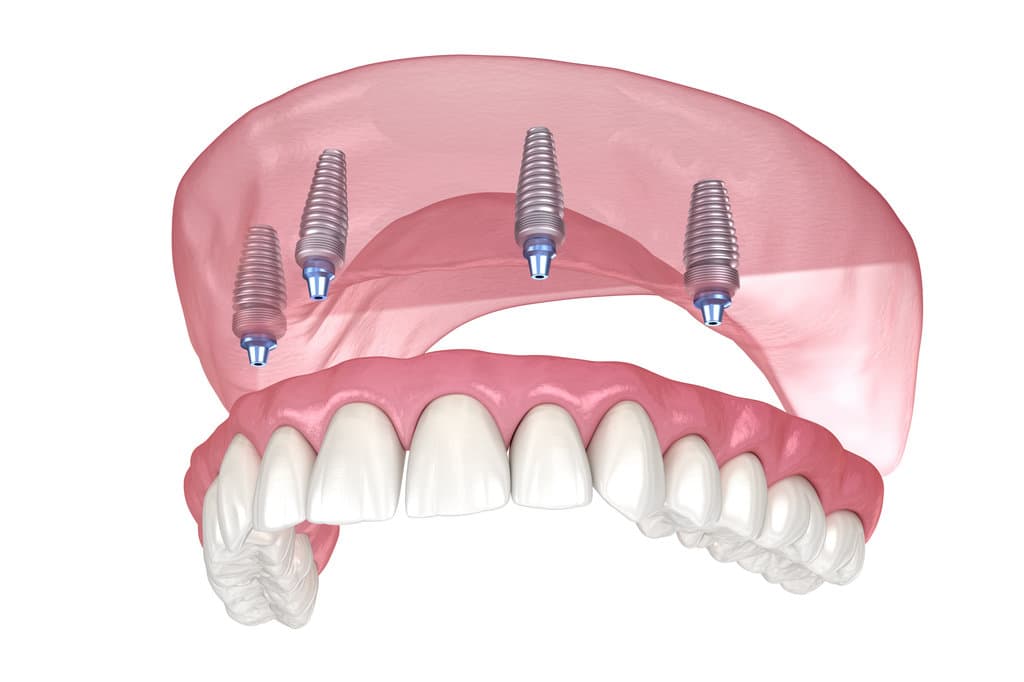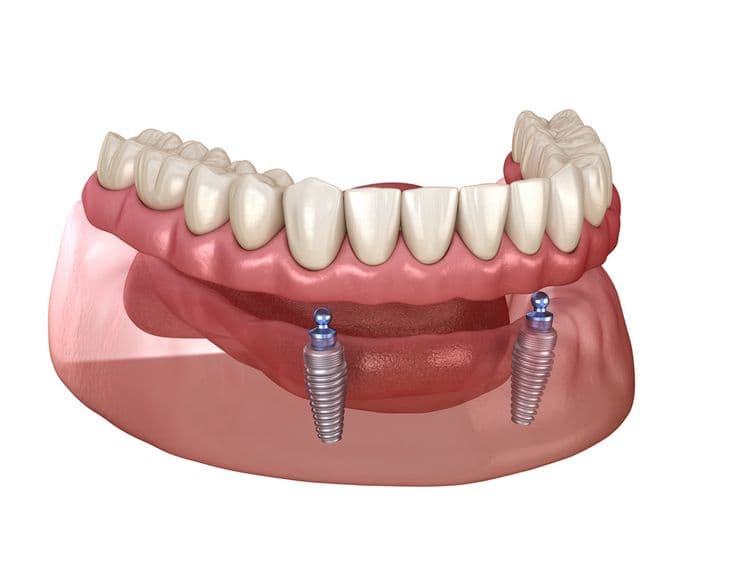Removable denture implants represent a significant advancement in dental prosthetics, combining cutting-edge technology with patient-centric design. Unlike traditional dentures, these implants are anchored securely to the jawbone, offering superior stability and functionality. With the use of biocompatible titanium posts, patients can experience improved mastication and speech. Understanding the intricacies of this procedure could transform your perspective on dental health. Could this be the solution for those seeking enhanced oral comfort and confidence?
Understanding Removable Denture Implants
Removable denture implants, a versatile solution in dental prosthetics, offer patients both functional and aesthetic benefits by integrating with the jawbone to support dentures. These implants serve as a stable foundation, improving the overall fit and comfort of the prosthetic device. Various denture types exist, including complete and partial options, each tailored to meet individual patient needs. Implant benefits include enhanced stability, reduced gum irritation, and improved oral hygiene. By providing a secure anchorage, these implants minimize slippage and discomfort, enhancing patient confidence in everyday activities such as speaking and eating. The integration of implants with bone tissue also helps in preserving the jaw’s natural contour, offering a long-term solution for those seeking reliable denture support.
Advantages Over Traditional Dentures
Removable denture implants offer considerable advantages over traditional dentures, primarily regarding improved stability and fit. Unlike conventional dentures, which may shift or slip during daily activities, implant-supported options anchor securely to the jawbone, providing a more reliable foundation. This stability not only enhances patient comfort but also greatly boosts chewing efficiency, allowing for a more varied diet and improved overall oral health.
Improved Stability and Fit
Although traditional dentures have long served as a solution for tooth loss, dental implants offer a notable advancement regarding stability and fit. The primary stability factors stem from the integration of implants with the jawbone, providing a secure foundation that minimizes movement. This contrasts with conventional dentures, which may shift due to inadequate support. Fit adjustments are more precise with implant-supported dentures, as they are custom-designed to align perfectly with the patient’s oral structure. This customization reduces discomfort and enhances retention, offering a more natural and secure fit. Patients benefit from reduced irritation and improved confidence, as the implants guarantee the dentures remain firmly in place. Overall, dental implants notably enhance the functionality and comfort of dentures, addressing common concerns associated with traditional options.
Enhanced Chewing Efficiency
Chewing efficiency notably improves with implant-supported dentures, a key advantage over traditional options. This enhancement is attributed to the dentures’ secure anchorage to dental implants, which counteracts the common issues of slippage and discomfort associated with conventional models. Patients experience improved chewing comfort, allowing for more effective mastication of a wide range of foods. This advancement considerably broadens dietary flexibility, enabling individuals to enjoy a diverse and nutritious diet without the fear of denture instability. The precise fit and stability offered by implant-supported solutions guarantee that the force distribution during chewing mimics natural teeth, promoting better oral health and digestion. Consequently, these implants provide a substantial improvement in quality of life for individuals moving from traditional dentures.
The Technology Behind Removable Denture Implants
Removable denture implants utilize a sophisticated implant attachment mechanism that guarantees stability and ease of use for patients. Recent advancements in denture materials contribute to enhanced durability and comfort, offering a more natural feel compared to traditional options. These technological innovations not only improve functionality but also greatly enhance patient satisfaction and quality of life.
Implant Attachment Mechanism
With the advent of advanced dental technologies, the implant attachment mechanism for removable denture implants has become increasingly sophisticated, providing enhanced stability and comfort for patients. The attachment types play an essential role in this process, with popular options including ball attachments, locator attachments, and bar attachments. These components are vital in ensuring that the denture remains securely in place, adapting to individual needs and preferences. Retention systems are engineered to offer ideal holding strength, counteracting the dislodging forces during mastication. These systems utilize precision-engineered components that seamlessly integrate with the underlying implants, minimizing movement and maximizing patient comfort. The careful selection of attachment types and retention systems is fundamental in achieving a balance between functionality and comfort, greatly enhancing the overall patient experience.
Denture Material Advancements
While the development of removable denture implants has revolutionized dental prosthetics, advancements in denture materials have further enhanced their efficacy and patient satisfaction. Modern denture materials, particularly advanced polymers, offer superior strength and durability, ensuring long-lasting performance. These materials exhibit enhanced biocompatibility, reducing the risk of allergic reactions and irritation within the oral cavity. Advanced polymers also provide improved esthetics, closely mimicking the natural appearance of gums and teeth. Additionally, these state-of-the-art materials allow for the fabrication of lighter, more comfortable prosthetics, which improve patient wearability and compliance. The integration of advanced polymers in denture manufacturing not only enhances structural integrity but also allows for customized solutions tailored to individual patient needs, greatly improving the overall user experience.
The Implant Procedure: What to Expect
As patients prepare for the implant procedure, understanding each step can help alleviate anxiety and set realistic expectations. Surgical preparation begins with a thorough evaluation, including imaging and health assessments, confirming suitability for the implant. During the procedure, local anesthesia is administered, and precise incisions are made to place titanium posts into the jawbone. The process requires meticulous attention to detail to avoid complications and guarantee proper alignment.
Post-surgery, patient recovery involves a healing period where osseointegration occurs, allowing the bone to fuse with the implant. This phase is essential for long-term stability and functionality. Patients are advised to follow detailed postoperative care instructions, including medication adherence and dietary modifications, to facilitate ideal healing and reduce the risk of infection. Regular follow-up appointments monitor progress and address any concerns.
Potential Candidates and Considerations
Not every individual is an ideal candidate for removable denture implants; rather, specific criteria must be met to confirm successful outcomes. Candidate evaluation begins with a thorough assessment of oral health, including bone density and gum tissue integrity, as these factors are essential for implant stability. Health considerations extend to the patient’s overall well-being, encompassing chronic conditions such as diabetes or osteoporosis, which may impede healing. Age is not a primary determinant, but lifestyle habits like smoking can greatly affect implant success rates. Additionally, psychological readiness and commitment to follow post-operative care are integral to the evaluation process. A detailed approach, focusing on both physical and mental preparedness, guarantees that only suitable candidates proceed with the procedure, maximizing the likelihood of favorable results.

Care and Maintenance for Longevity
Ensuring the longevity of removable denture implants requires consistent and meticulous care, which is pivotal in maintaining both the integrity of the implants and the health of the surrounding oral structures. Effective cleaning techniques are essential, involving daily removal of the dentures for thorough brushing with a non-abrasive cleaner. This helps prevent plaque buildup and bacterial proliferation. Additionally, soaking the dentures overnight in a dentist-recommended solution aids in maintaining material flexibility and hygiene. A structured maintenance schedule should include regular dental check-ups to assess the fit and condition of the implants, allowing for timely adjustments and preventing complications. Patients are advised to avoid using hot water, which can warp the material, and to handle the dentures carefully to prevent physical damage.
Comparing Costs and Payment Options
While meticulous care is essential for the longevity of removable denture implants, understanding the financial aspects is equally important for patients considering this dental solution. A thorough cost analysis reveals that the initial investment in denture implants can vary greatly based on factors such as the type of implant, materials used, and geographic location. Patients should consider not only the upfront costs but also potential long-term savings due to reduced need for frequent replacements associated with traditional dentures. Payment plans offer flexibility, allowing patients to spread the cost over time, often without interest or with minimal financial strain. Dental practices frequently collaborate with financing companies to present affordable options, thereby making these advanced dental solutions accessible to a wider demographic.
Common Misconceptions and Myths
Despite the growing popularity of removable denture implants, several misconceptions persist that may deter patients from considering this option. One prevalent myth is that these implants are painful and complicated to install. However, modern techniques guarantee minimal discomfort and efficient procedures. Another common belief suggests that removable denture implants are less durable than traditional dentures. In fact, they offer enhanced stability and longevity when maintained properly. Myth debunking efforts emphasize that such implants are not excessively costly; flexible payment plans are often available. Additionally, some patients worry about the aesthetics, fearing unnatural appearances. Advances in dental technology have led to implants that closely mimic natural teeth, enhancing both function and appearance. Addressing these misconceptions can empower patients to make informed dental choices.
Real-Life Success Stories and Testimonials
Success stories from patients who have undergone removable denture implant procedures provide valuable insights into the transformative impact of this dental solution. Patients report significant improvements in oral function, esthetics, and overall quality of life. One notable success story involves a 62-year-old patient who struggled with traditional dentures, experiencing discomfort and instability. After opting for removable denture implants, the patient described enhanced chewing efficiency and a renewed sense of confidence in social settings. Another testimonial highlights a 70-year-old individual who, after receiving the implants, was able to enjoy a varied diet without restrictions, drastically improving their nutritional intake. These patient experiences underscore the efficacy of removable denture implants in enhancing both physical and psychological well-being, affirming their role as a viable dental solution.
Frequently Asked Questions
How Long Does the Implant Surgery Typically Take?
The surgery duration varies, typically lasting 1-2 hours. Procedure steps include anesthesia administration, precise drilling, and implant placement. Each stage is essential for patient comfort and implant stability, ensuring ideal results and minimizing post-operative complications.
Are Removable Denture Implants Covered by Insurance?
Insurance coverage for dental procedures varies considerably depending on individual dental policies. Patients should consult their insurance providers to determine if their specific plan includes coverage for removable denture implants, as this often requires pre-approval.
What Is the Recovery Time After Getting Implants?
The recovery time after getting implants varies, typically ranging from a few weeks to several months. The healing process requires careful post-operative care, including managing swelling, maintaining oral hygiene, and attending follow-up appointments to guarantee successful integration.
Can Implants Be Done for a Single Missing Tooth?
A single tooth can indeed be replaced using an implant, offering benefits such as preserving adjacent teeth, maintaining bone health, and enhancing oral function. This patient-focused solution provides a durable, natural-looking result with ideal long-term outcomes.
How Often Should I Visit the Dentist After Getting Implants?
After receiving implants, patients should attend follow-up appointments every few months initially, then annually. These visits guarantee proper post-surgery care, assess implant stability, and reinforce dental hygiene practices to maintain overall oral health.


